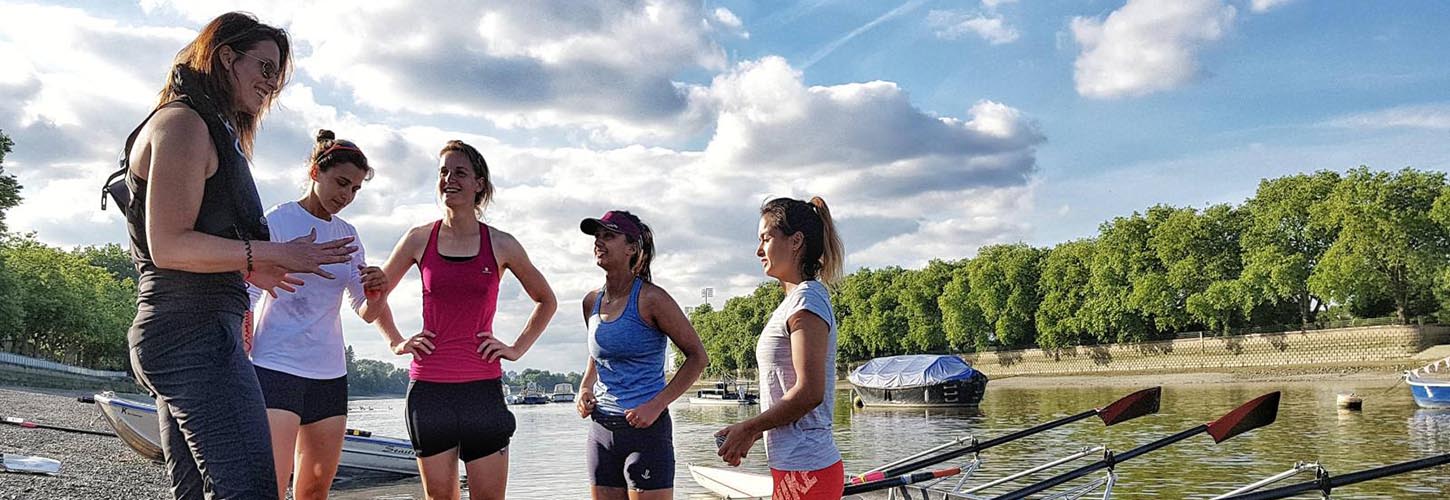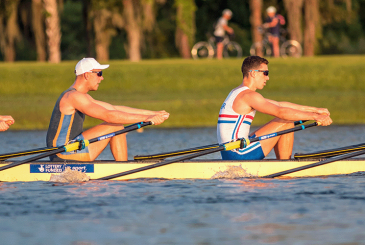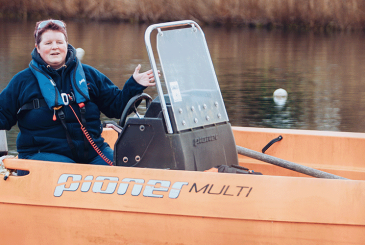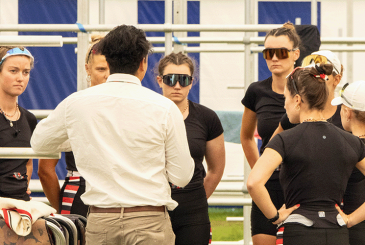How coaches give feedback can determine how well a rower performs. But where to start? GB Rowing Team coach Christian Felkel provides advice
What is feedback? I would say that it’s the transmission of evaluative or corrective information about an action, or event, which is used as a basis for improvement.
Feedback can be as simple as a coach shouting through a megaphone or putting a straw on the boat to indicate a catch angle – or it can be as complex as installing many sensors on the boat and athlete. The quality of feedback determines the quality of learning of motor skills and ultimately the quality of the performance. The better we prepare the rower, the better the race results will be.
Athlete feedback
There are many forms of feedback systems, for example athletes may have built-in mechanisms that tell them how well they did. They can see the results, sense movements that caused the results, and form perceptions about how they think they performed. So an athlete may have a good idea about the quality of a rowing stroke by feeling the release and feel of the glide of the boat in the recovery phase.
Coaching feedback
Externally, coaches can also provide additional information to give athletes about their performances. This helps them to narrow the gap between what they perceived about what they did, what actually happened, and how they can improve.
The coach can let the athlete know specific information that affected the outcome, for instance: “You were about two seconds too slow.” They can also provide feedback on what the athlete actually did that led to the outcome, “You were sitting back a bit too far, so shift your weight forward.”
Then there is an internal feedback system for the coach. He (or she) observes the outcome of their instructions and then modifies them to achieve better and faster results.
Advances in information technology mean that scientists have developed sports-specific feedback systems in cooperation with sports specialists. These incorporate sensors and devices into equipment or use sensors attached to the athlete to acquire biomechanical, physiological, and cognitive parameter values of the exercise performed. I believe that this enables athletes to better compare performance in training and competition.
Factors that affect boat speed are important determinants of rowing performance and should form the basis of feedback to rowers and their coaches. Biomechanical analysis of rowing has led to variables that are causally linked to boat speed. These variables can be measured and feedback can be presented instantaneously on the water, or they can be videoed for discussion after the event.
The Peach system
One feedback technique that has been used extensively in the last few years is the Peach system. The boat is fitted with sensors in the oarlock to measure forces, angles and the velocity and acceleration of the boat.
Since the system is modular, we can include the measurement of the foot stretcher force. This gives us quite a complete picture of the forces at play in the rowing stroke. Each rower can see his or her contribution to the boat in terms of a force-time curve, the catch and finish angles, and the timing of their movements with others. Through acceleration and velocity, we can see the changes on the boat as a whole.
Video goggles
Video goggles consist of real-time video images projected onto goggles that are worn by the athlete from a telemetered video camera held by the coach. Rowers can see themselves in action and receive verbal feedback from the coach through a communication system. Improved motor skills are believed to increase performance because of greater efficiency and a reduction of injuries through more controlled motor skills.
Feedback tips
- Prioritise your feedback
Be selective on how you report back to the athletes. If you overload them with information, the key points will get lost. Make sure they understand how it is relevant to them. - Is it part of your overall goal?
Ensure that what you feed back to the rowers is relevant to what you are aiming to teach.
British Rowing runs high quality coaching courses for all abilities. Find out more here.
Photo credit: Stuart Gordon










